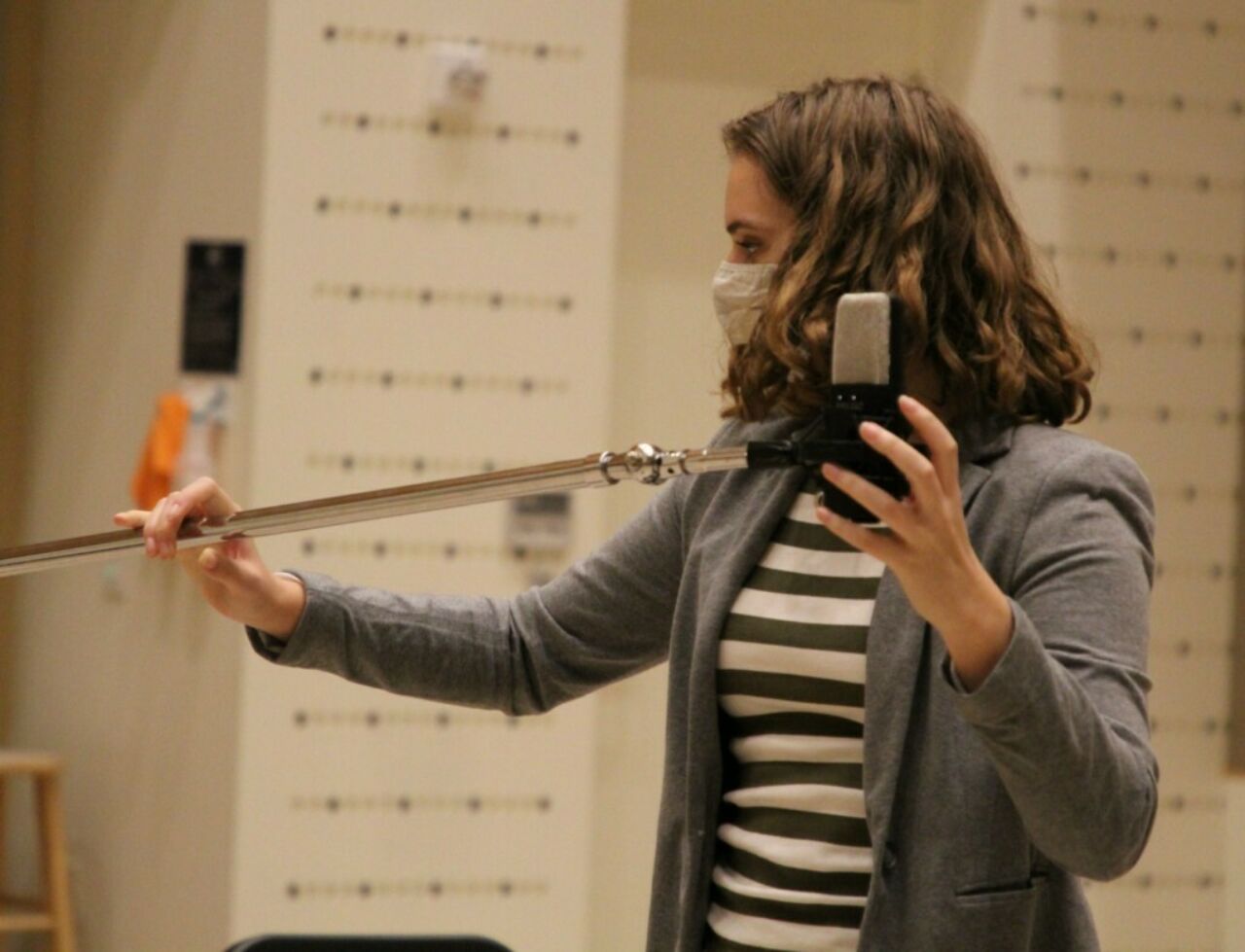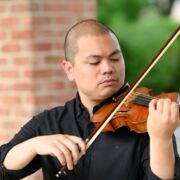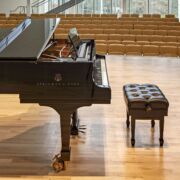
What is ROARS?
At Penn State music composition and technology, Research of the Arts, Recording, and Sound (ROARS) is the intersection of our practice, our community, and our resources.
ROARS practice connects people from various areas of focus – composition, performance, sound design, musicology, music theory, engineering, science, and more all have a place here. At ROARS, you will learn from these people and teach them. You will acquire a confident understanding of a broad range of technology relevant to the arts and music, as well as begin to delve into the specializations that you find to be a good fit. At ROARS we refine the skills that you probably associate with music technology as well as some that you may not yet, including recording and microphone techniques, live sound reinforcement, music software programming, hardware design, discoveries about sound or music, music information retrieval, acoustic composition, computer-assisted composition, and electroacoustic composition.
ROARS community is cooperative, strong, and innovative. Our resident faculty are part of Penn State’s School of Music as well as the School of Theatre; here you are also encouraged to learn from the deep benches of faculty in various other disciplines at Penn State. While you explore those depths, you will also have a base of support in your fellow ROARS students, which help one another in learning the body of knowledge that people in music technology today must acquire.
The diverse career paths and specializations that we then branch out into mean that we are not in competition for the same jobs as much as we are growing in strength together and helping one another find the right fit for each student’s time after leaving Penn State. You will learn how to conduct studio recording sessions, record live concerts, curate concerts, and more, learn with more experienced students, and then take the lead when you are ready.
Our physical resources will provide you with the material you need in order to get it done. The ROARS recording studios provide first-rate recording and mixing facilities for performance faculty and students to carry out recording projects with staff and student engineers.
Connect with Us
How to Apply
Important dates, deadlines + interview day activities
Preferred Deadline for Penn State Undergraduate Music Tech Admission: November 26, 2021
Preferred Deadline for Penn State PPC Comp & Tech Admission: December 1, 2021
While we prefer to receive your portfolio materials by these deadlines, applications will continue to be considered after these dates. An application to the Penn State Music Technology programs requires an extensive review of portfolio materials before the interview takes place and the preferred deadlines above provides the faculty with the opportunity to become familiar with your work.
Interview Dates for all Fall 2022 Penn State Composition Applicants: December 5, 2021 and January 22, 2022
- Alternate interview dates can be scheduled at the discretion of the faculty.
- Each interview day will include a post-interview composition tour and informational session. Parents are welcome to attend the tour and info session.
- Applicants should plan to be at Penn State for the entire day.
- Interviews for undergraduate applicants are by invitation only, after the initial application/portfolio is pre-screened.
- PPC applicants take the Graduate Diagnostic Exam on the day of their interview.
- Interviews for PPC applicants are by invitation only, after the initial application/portfolio is pre-screened.
How to apply: step by step
Steps for Applying to the B.A. in Music w/Music Technology Option
- Apply for admission to the university online through the Common Application, the Coalition Application, or Penn State’s own application.
- Schedule your School of Music audition in Acceptd. You will complete a series of background questions, request your audition date, and pay the fee to Acceptd at this time. Please complete this as soon as possible after applying to the university. Do not wait to hear from the Office of Undergraduate Admissions before scheduling.
- Submit a recording of your audition and portfolio materials via Acceptd. You may view or download the undergraduate audition requirements and deadlines for the submission of materials in the Audition Information section.
- Complete an audition and/or interview with faculty as required for your intended major or instrument.
Steps for Applying to the PPC Comp & Music Tech Program
- Contact Dr. Steven Rice, scr5385@psu.edu, for application information.
Steps for Applying to the Music Technology Minor
Details regarding application steps, portfolio requirements, and supporting courses for the minor are available on the Music Technology Minor degree page.

Music technology portfolio contents and submission
A successful portfolio submission to the Penn State Music Technology program includes the following items:
- Work Samples
Undergraduate Applicants: 2-5 Works
Minor Applicants: Details here
PPC Applicants: 3-5 Scores - A narrative about your aspirations, as well as how and from what people or communities you have learned music and technology.
- Curriculum Vitae or Resume
In addition to the above items, undergraduate applicants must take an instrumental audition. An undergraduate (BA) application to the music technology program will only be fully considered after the applicant is accepted into an instrumental studio. PPC students are admitted based on their portfolios only and do not have to take an instrumental audition.
Dr. Steven Rice would love to hear from you with questions about our program or the application process. Please do not hesitate to reach out: scr5385@psu.edu




